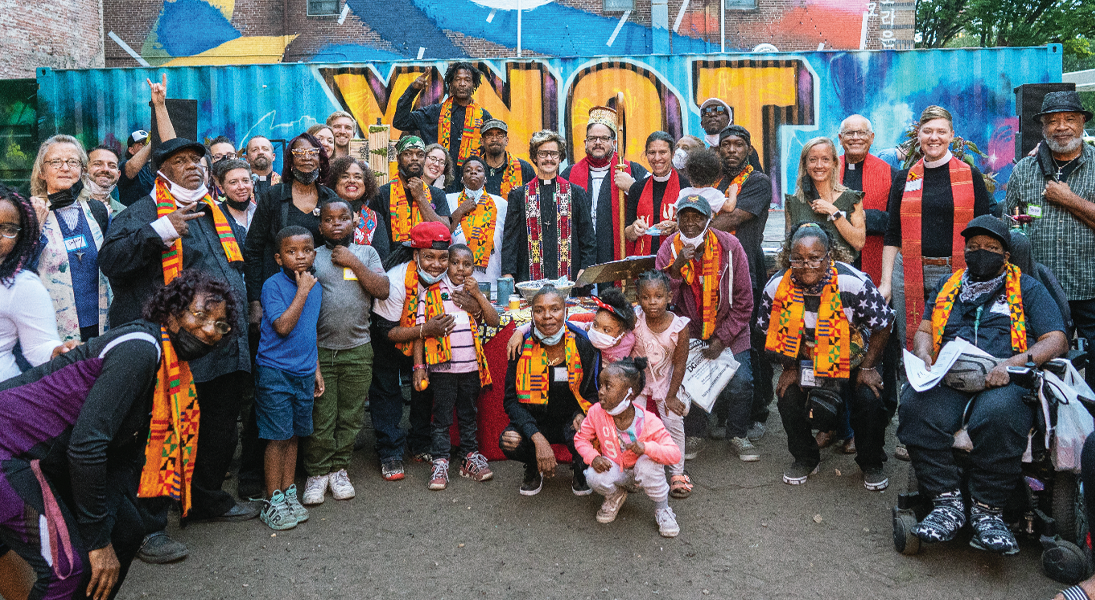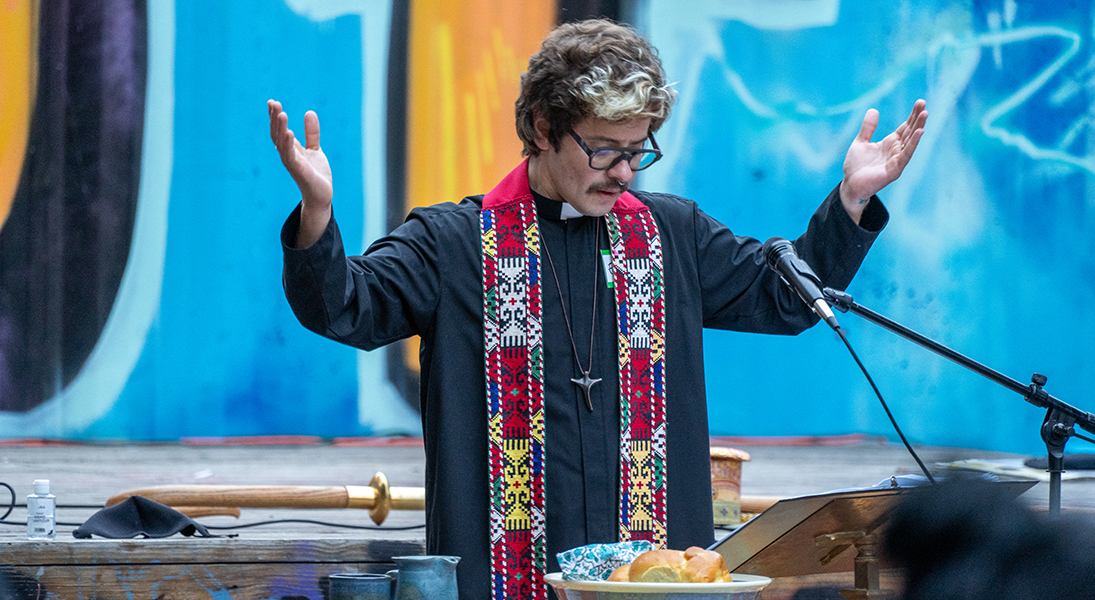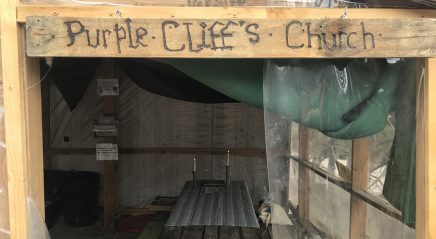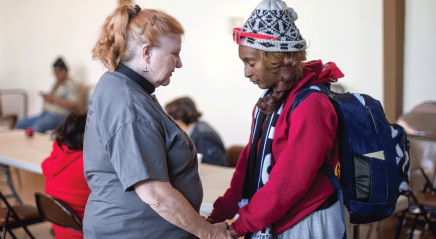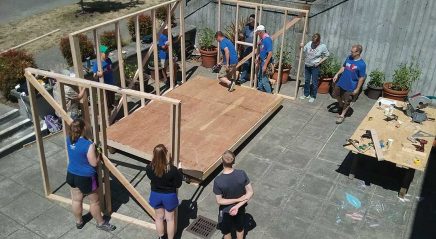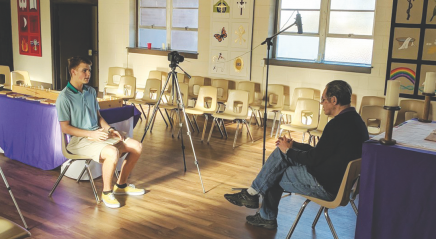COVID-19 has meant many changes for many people: online school and worship, families balancing work with child care and, in too many instances, saying goodbye to loved ones.
For one ELCA community in Baltimore, though, there has been growth—and hope—during uncertain times.
In early 2020, after being called by the Delaware-Maryland Synod to be a street minister in Baltimore’s Station North neighborhood, Elazar Atticus Schoch Zavaletta began spending time and engaging with people on and around North Avenue. That street ministry evolved into North Ave Mission (NAM), the only synod authorized worshiping community in the Delaware-Maryland Synod to launch during the pandemic.
The NAM community gathers each week at Ynot Lot, an outdoor event space, for “Family Life” (part worship service, part resource connection) and the Farm-to-Stoop Free Market, where anyone can stop by, pick up a hot meal, leave with clothes and groceries, and visit a mobile community health clinic.
NAM has also launched Red Shed Village, an intentional community based on harm reduction that combats houselessness through a healing environment.
Because NAM is composed mainly of currently and formerly unhoused people, people of color and members of the LGBTQIA+ community, its ministries naturally center the experiences and leadership of those who are marginalized.
Zavaletta, now pastor of NAM, credits the ministry’s successes to those in the area who founded the ministry with them, and to the support of the synod and its congregations.
“Everything that has sprung to life at North Ave Mission is a vision of the early community,” Zavaletta said. “We’re a mix of worshiping community, mutual aid organization, harm reduction, housing, leadership development, even advocacy. But Family Life is our center and our locus. It is what everything else that NAM is doing has grown out of.”
“You’ve got to see it to believe it.”
Keia McCray is a community coordinator with NAM, a job she started in mid-2021. McCray, who grew up a few blocks from where NAM gathers each week, said the ministry has changed the neighborhood and there’s even less crime.
“You’ve got to see it to believe it,” she said. “The community is getting strong with each other.”
McCray said NAM is also changing what church can look like in at least two significant ways. First, and perhaps most visibly, the worshiping community gathers outdoors each week. Second is that Zavaletta identifies as a nonbinary Latiné transguy, making them the first known transgender (nonbinary) man of color to be ordained in the ELCA. Zavaletta is Tejano and comes from a mixed-race background that includes Indigenous, Basque, Mexican and Swiss ancestors.
“I came to the ELCA because grace was embodied for me and to me,” Zavaletta said. “I came to the ELCA because when people looked at me, they saw possibility and they saw potential, and they put my love of God and my call in front of all of the other ways the world might have disqualified me.”
Zavaletta’s ordination service was held at the Ynot Lot space on Oct. 7, 2021. “The rite took place in the same place where we come together for worship each week,” they said. “It’s the same spot from which many candlelight vigils are held, where protests get kicked off. It’s holy ground.”
The service also included other NAM leaders. “The other important thing about it, for me,” Zavaletta said, “is that the leaders of NAM were consecrated to their vocations as elders, guardians, deacons and evangelists, shepherds.”
Signs of vitality
William Gohl Jr., bishop of the Delaware-Maryland Synod, said he sees signs of vitality in NAM, including adult baptisms, donations from other congregations and worship attendance—both at weekly gatherings and in smaller groups. “It’s been marvelous to watch.”
From NAM’s beginnings, when Zavaletta was walking the streets and listening to community concerns, they have strived to keep the focus on the people to which they minister. They still have a copy of an old meeting agenda, covered in notes, that identifies the group’s aspirations: providing shelter, food and hygiene products, and a loving community. These are all things NAM does today.
Looking ahead, Zavaletta hopes NAM will continue to follow the vision of those in the community it serves. “The most important thing about NAM is that we center the leadership and visions of those who are most impacted by systemic oppression. I am here as a gatherer and a nurturer, and to empower people and recognize their gifts, but not necessarily to determine the vision.”



